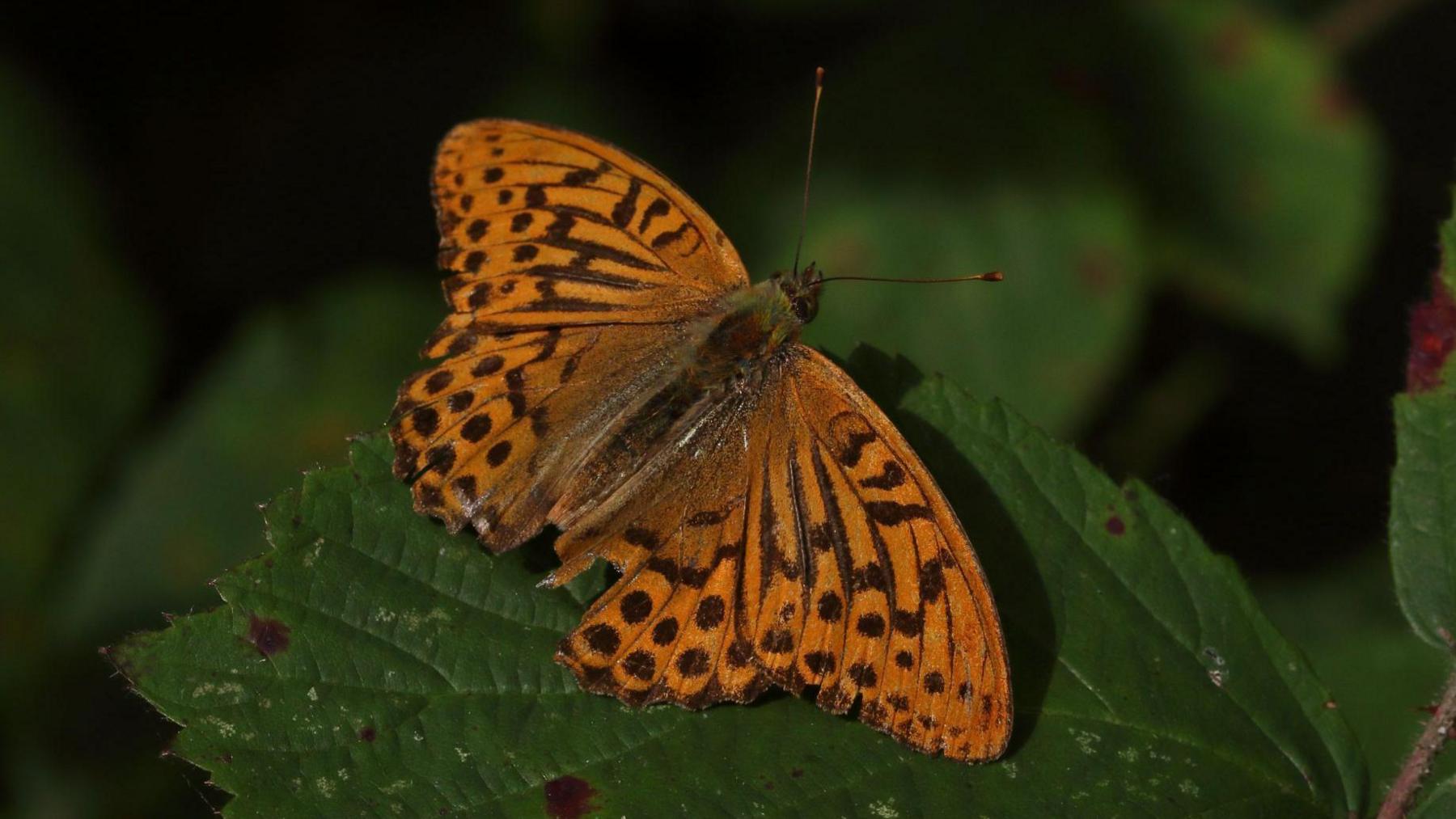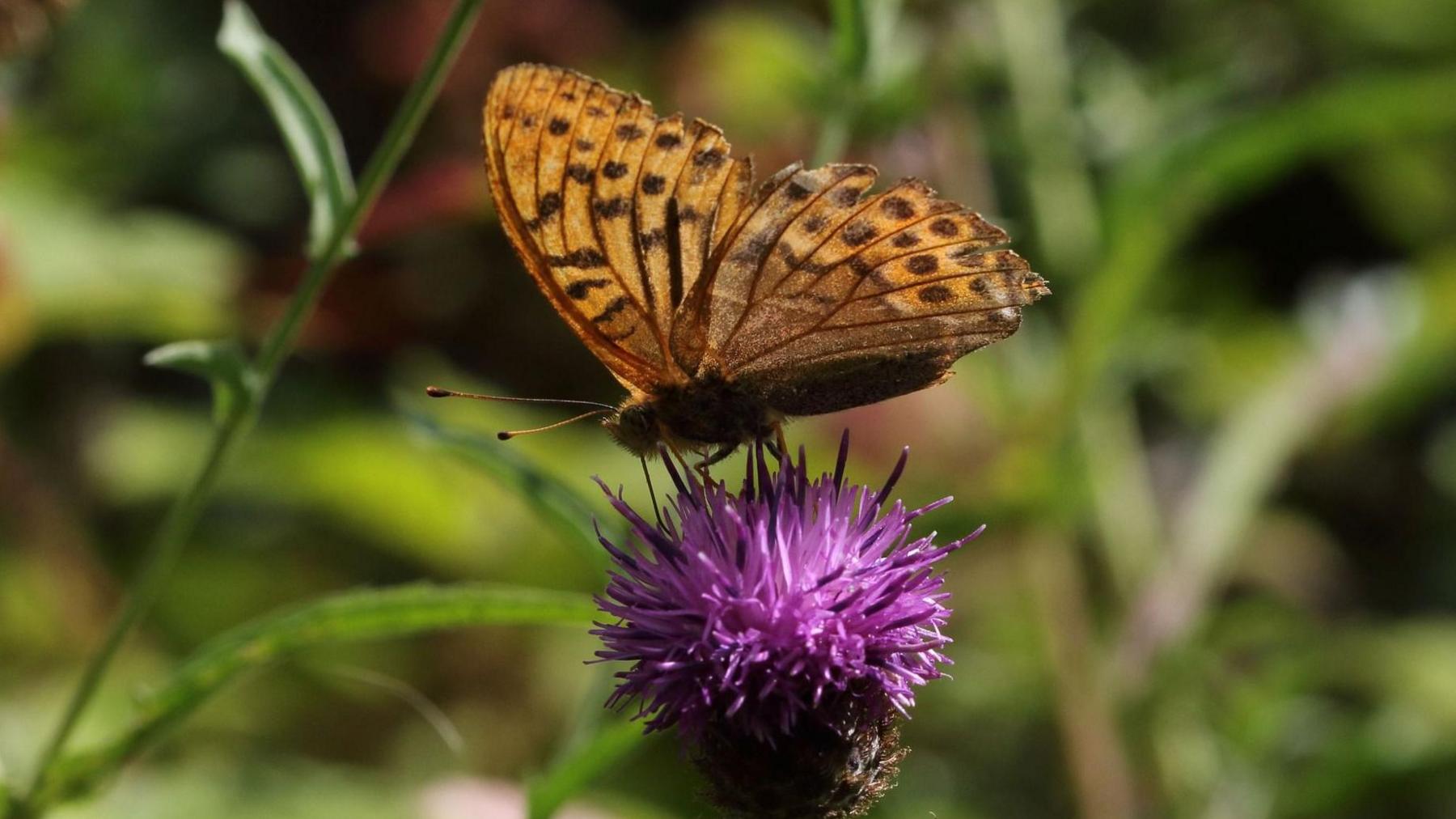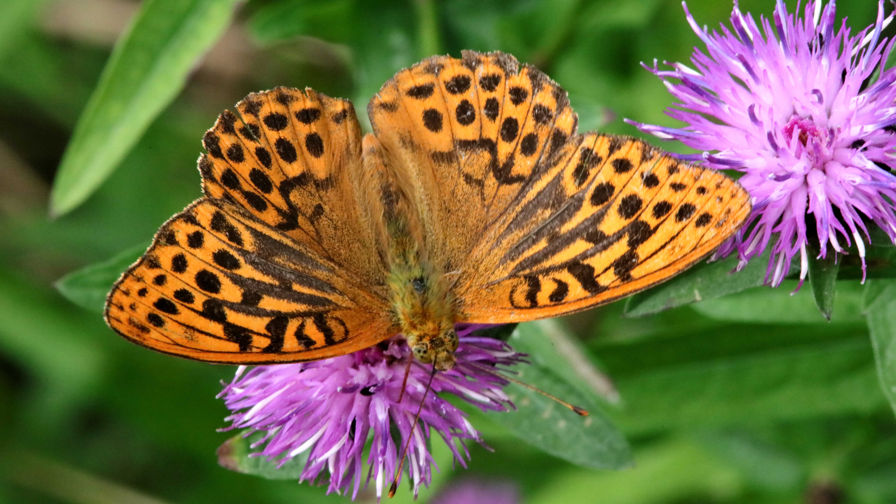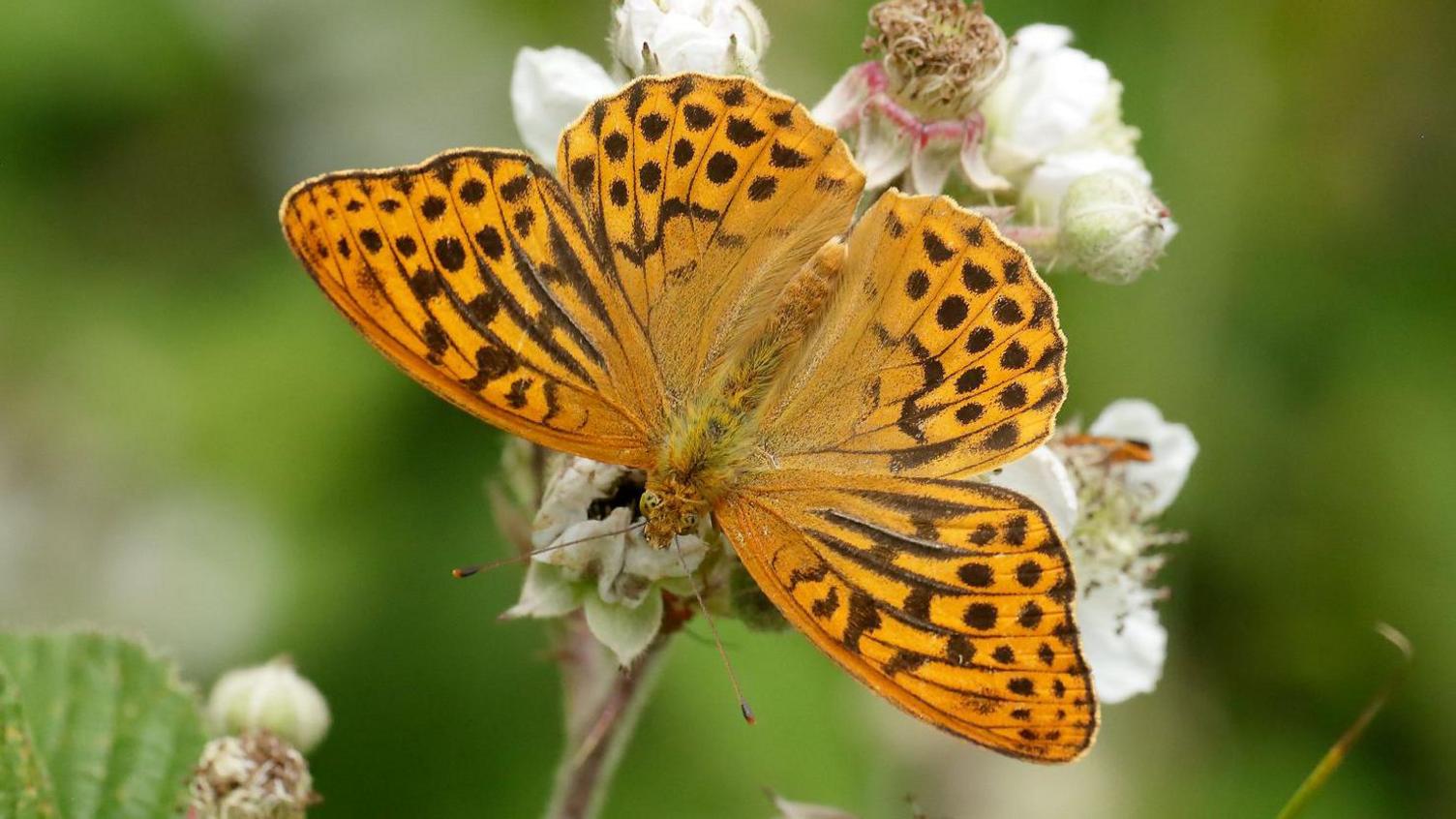Rare butterfly spotted for first time since 1850

The Silver-washed Fritillary has been growing in numbers in the north-east of England
- Published
A butterfly has been spotted on the edge of a county for the first time in nearly 200 years.
The Silver-washed Fritillary was recorded at Havannah and Three Hills Nature Reserve in Hazlerigg, near Newcastle's border with Northumberland, by local Chris Barlow in August.
The Natural History Society of Northumbria said the butterfly had not been seen in the county since 1850.
Stephen Kirtley, from charity Butterfly Conservation, said the species had become extinct in the North East in the 19th Century, but its numbers were growing again, especially in County Durham and Teesside.
Mr Kirtley said he hoped the Silver-washed Fritillary would grow its presence in south Northumberland and start spreading further north.
However, he said the butterfly that was spotted at Havannah and Three Hills Nature Reserve was male and it would not create a colony itself.

The butterfly's return to the region has been celebrated
The Silver-washed Fritillary is more widespread in Wales and southern England.
Its last sightings in the North East were in the 1850s.
It was not spotted again until 2017, when it was recorded in Wynyard Country Park, near Stockton.
The species has since been seen near Durham city and Castle Eden, with about 14 sightings recorded this year so far, up from 10 in 2024.
"Perhaps at some stage in the mid-19th Century it became too cool for the butterfly to survive here," Mr Kirtley said.
"Or perhaps changes in land management and woodland management meant that the places where it used to be found in the 1850s and before were no longer suitable and it's not been found in this area.
"I strongly suspect and believe that because of climate warming, the butterfly has started to move north and is able to use habitat in our area that up until recently wasn't suitable for it."

The butterfly has been spotted more regularly in County Durham since 2017
Councillor Alex Hay, deputy leader and cabinet member for neighbourhoods at Newcastle City Council, which looks after Havannah and Three Hills Nature Reserve, said the butterfly's return to the north was "a powerful indicator" of the impact of conservation and habitat restoration efforts.
"It's a proud moment for the city and a reminder of the importance of protecting our natural environment for future generations," Hay added.
Follow BBC North East on X, external, Facebook, external, Nextdoor and Instagram, external.
Get in touch
Do you have a story suggestion for BBC North East & Cumbria?
- Published25 May
